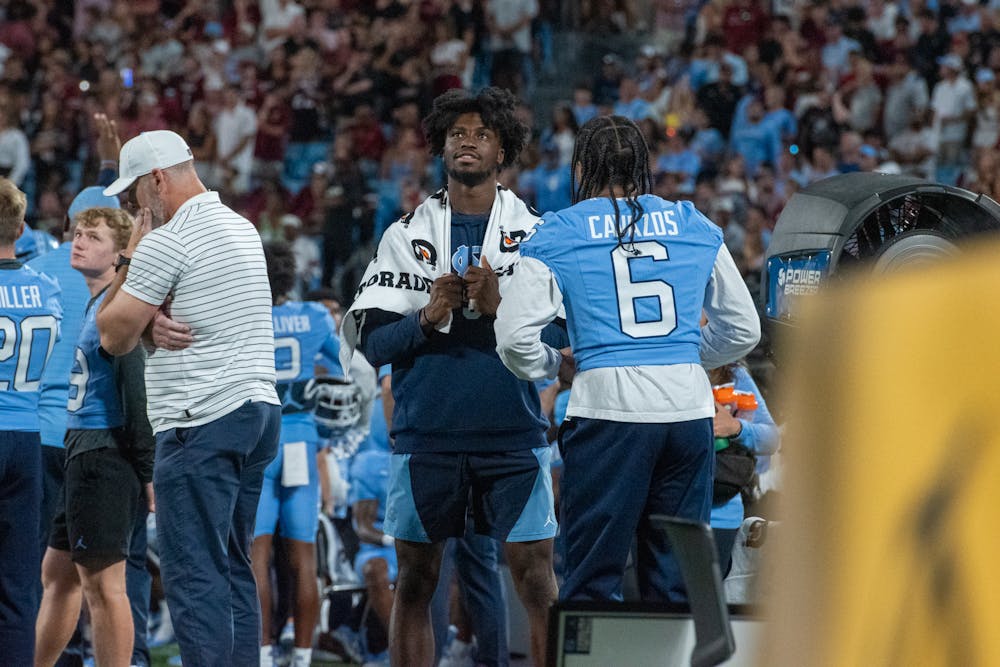The NCAA can cut its whole ‘caring about players’ mental health’ act, because it’s not fooling anyone. There’s no need to waste anyone’s time. It’s clearer than ever that it’s all about the money and a mission to restore power. And Tez Walker is collateral damage.
Walker is caught in the middle of the NCAA’s mess of transfer policies and NIL and its desperate attempt to correct them. These policies have shifted power away from the NCAA and into the hands of the students, allowing them to earn revenue from their name and have greater autonomy in where they can play. The NCAA is responding by making rash and life-altering decisions that harm the athletes it claims to care about. When the NCAA decided earlier this year to limit transfer waivers in order to curb the number of athletes in the transfer portal, it showed just how hypocritical the organization is.
ESPN analyst Jay Bilas ripped into the NCAA’s verdict on X. “It’s not a question of trying to establish credibility because the NCAA has none in this area,” he said. Regarding the hypocrisy of evaluations, Bilas said that Walker’s ineligibility “makes no sense,” “especially when you have all these two-time transfers, some who’ve transferred three and four times, who’ve played six years.”
Putting the technicalities of the situation aside, the NCAA does not acknowledge the significant toll that it has taken on Walker’s mental health. This is a matter that head coach Mack Brown and Walker’s grandmother Loretta Black have spoken about throughout the controversy.
When asked about Tez Walker’s ineligibility in a press conference after the South Carolina game on Sept. 2, Brown said that the team "didn't even want to leave him by himself [the night before]."
"He said 'Can I go home?'," Brown recounted. "We said 'No, you need to stay here and be with us and be around the team."
As a Charlotte native, Walker dreamed of returning home to be close to family, especially his grandmother, who has yet to watch him play in college due to health concerns. Right when he had the chance to play in front of one of his biggest supporters, it was stripped away from him.
To go from committing to a dream school to having a career jeopardized is an understandably taxing situation. All of the suffering that Walker has endured is a testament to where the NCAA’s priorities lie, which is not mental wellness. The NCAA can’t profit from mental health resources, so it stands to lose even more in battling cases like the class-action lawsuit from former athletes seeking millions of dollars in damages.
Instead of living up to the promise of “creating a culture where care seeking for mental health issues is as normative as care seeking for physical injuries,” the NCAA has its eyes on its wallet. Looking at the organization’s history, the lack of concern over players’ well-being is nothing new. It’s the reason why until 2021, it refused to allow athletes to make money while simultaneously raking in billions in revenue. And even that amendment was forced by a lawsuit.
So, although disgraceful, the Tez Walker decision is unsurprising. While Walker was sitting through hearings with his career on the line, the NCAA was fighting athletes in court.



